- Call us: 01444 237070
- Contact Us
- Stores
- Sign In / Register
-
- Back
- Used Cameras
- Used Accessories
- Used Lenses
- Used Video
- Used Film Equipment
- Used Stock Alert
- Used Blank Test
- Sell or Part Exchange
- Used Clearance
- Recently Added Used Equipment
- Park Picks
- Faulty
- Trade-In
- Blog
- New in
- Call us
- Contact us
- Stores
- Sign in
- Categories
- Tips & Inspiration
- Reviews
- News
- Events
- Features
- Buying Guides
- Competitions
Best Camera for Beginners
Photography is one of the most rewarding hobbies that you can pick up. Countless budding photographers create and share their images on social media, connecting them with like-minded enthusiasts and helping them to develop their skills. Camera technology supports newcomers, enabling everyone to capture amazing photos of anything they find interesting, from the smallest wildflower, to planets, stars and literally everything in between.
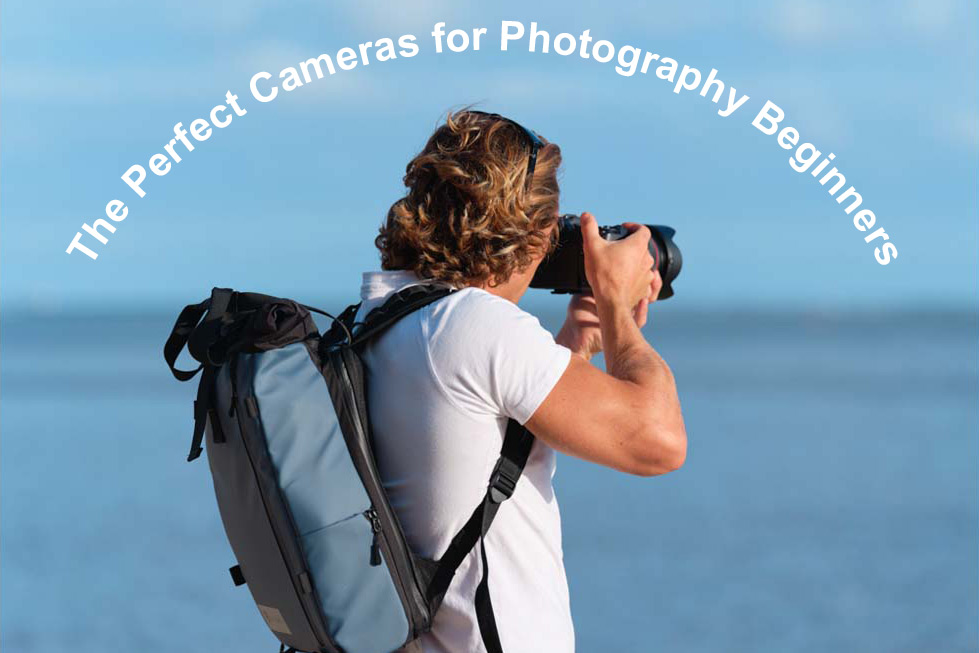
Once you’ve decided to pursue photography, you’ll need to invest in some photography gear. With so many options to pick from, it can feel overwhelming – particularly when it comes to choosing the best camera for beginners.
You’ve no doubt heard of DSLR and mirrorless cameras and perhaps brands like Canon, Nikon and Sony, but what’s the difference between them all? Whether you’re totally new to photography or upgrading from a compact camera or smartphone, our tips will help you decide which is the best choice for you.
How to Choose the Best DSLR Camera for Beginners
‘DSLR’ stands for Digital Single Lens Reflex, which evolved from ‘SLR’ film cameras that many of our parents and grandparents owned back in the day. There are plenty of DSLR cameras for every skill level, from complete beginner to working professional, but what benefits do they offer when you’re just starting out?
One advantage many photographers have experienced is the reliability of DSLRs, as they are extremely durable and well-suited to demanding subjects such as sports, action and wildlife photography. Most DSLRs offer great battery performance too, which means you won’t need as many spare camera batteries for your adventures. What’s more, DSLRs tend to be bigger with a deeper grip, which appeals to users who want a camera that feels secure in the hand.
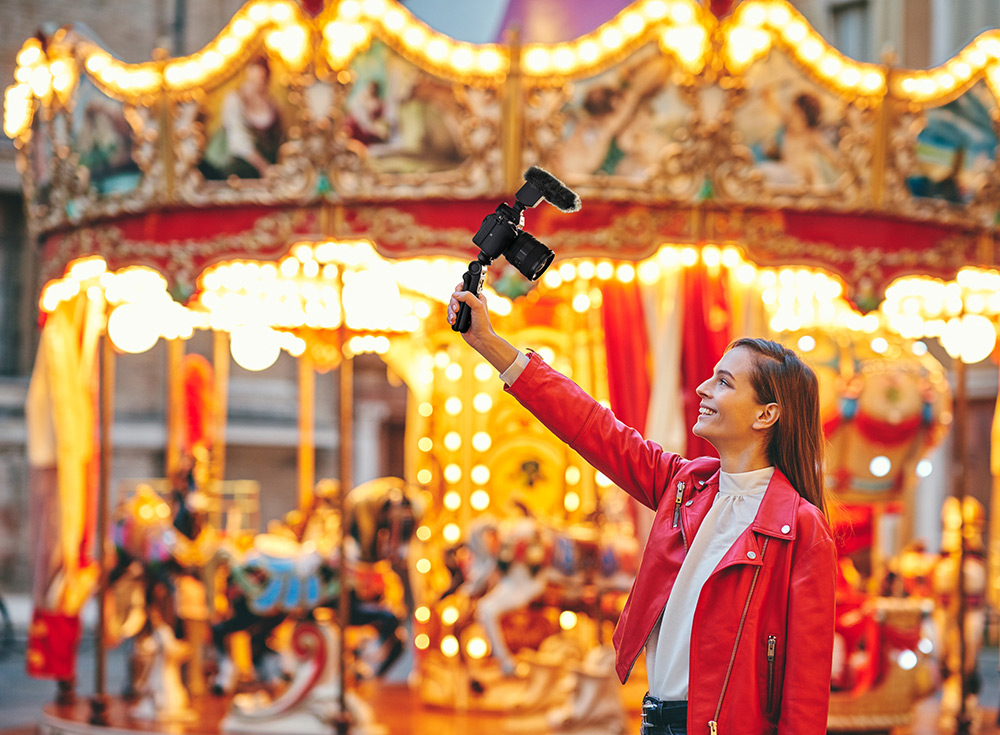
You’ll also find that even entry-level DSLRs offer some advanced features which you would usually have to pay more for if you were looking at purchasing a mirrorless camera. These include suitably fast burst rates to capture most subjects, blackout-free optical viewfinders (so you can see every moment while you’re shooting) and strong low-light capabilities. These features, together with the ability to shoot in auto and manual modes, ensure you can progress your skills to a more advanced level, when you may decide that your first camera needs upgrading.
There are three major DSLR manufacturers – Canon, Nikon and Pentax. Canon and Nikon are the most popular, with huge ecosystems of lenses, accessories and both full-frame or crop-sensor bodies to choose from. Pentax, on the other hand, is more of a niche manufacturer, specialising in DSLRs. They’ve gained a strong following, as their products combine excellent value for money with great image quality, which supports many styles of photography.
This leads us to one of the most enticing reasons for choosing a DSLR as your first camera, which is access to the vast choice of new and second-hand lenses. As you progress, you will want a variety of lenses in your collection in order to shoot different subjects at various focal lengths. You can invest in new lenses as you refine your hobby and discover the subjects you enjoy capturing the most.
Which is the Best Mirrorless Camera for Beginners?
The number of mirrorless cameras on the market is growing rapidly, as this newer technology is becoming more widely adopted. As the name suggests, a mirror has been removed from inside the camera body, which allows manufactures to make them smaller and lighter. The removal of the mirror also lets you see what you’re shooting through an electronic screen, rather than with an optical viewfinder. This offers some distinct advantages, particularly when recording video, as well providing a familiar shooting experience more akin to using a smartphone. As mirrorless systems tend to be smaller, they also provide a great solution for travelling.
The good news for photographers and videographers is that camera companies are investing heavily in new mirrorless technologies. This provides access to increasingly advanced features using automatic and manual shooting modes. Better features also enhance the shooting experience, which becomes more fun and makes it easier to capture seriously impressive results - even for those who are new to photography.
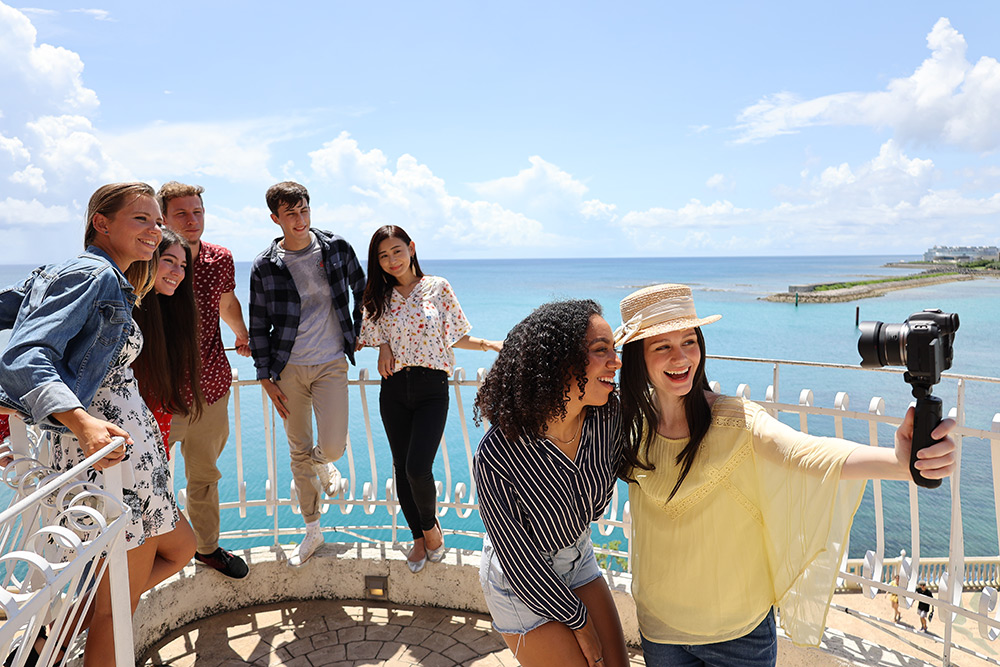
Establishing a rough budget is a good way to go about finding the best mirrorless camera for you. Remember to include at least one lens, spare batteries, a camera bag and any other essential photo accessories you’ll need within this budget. Think about which features are most important for you, such as video quality, image stabilisation and sensor resolution, as you may need to compromise on some of these.
It is worth noting that a camera with numerous high-end features will usually be more expensive. Aside from specific features, the next biggest influence on price is the sensor size. All of the major camera brands make mirrorless cameras, which are classified by their sensor size, which are: medium format, full frame, APS-C (cropped) and micro four thirds. Due to their price, medium format cameras are the realm of professionals, with beginners typically choosing a smaller sensor option like a Sony A6000 With 16-50mm lens kit, with its crop sensor.
That brings us to full-frame cameras, which deliver the lowest noise and best low light performance amongst other benefits, from their larger sensor. You can also get a more shallow depth of field, which is preferable for portraits and isolating a subject from the background. The downside of a full-frame system is that lenses tend to be more expensive, larger and heavier to carry around.
Beginners often choose an APS-C camera from the likes of Canon, Sony, Nikon and Fujifilm, as they are generally smaller and more affordable. All of these brands develop some excellent features that are good for beginners, in both auto and manual shooting modes. You will also find a growing number of mirrorless lenses to choose from, together with plenty of accessories for mirrorless systems.
Lastly, we have micro four thirds (MFT) cameras, which are made by Olympus OM SYSTEM and Panasonic Lumix. These are often chosen for their incredibly compact size, small, lightweight lenses and state-of-the-art photography and videography features. MFT cameras are popular for travel and wildlife photography due to their small size and weight.
When buying your first camera, you may want to consider whether to get the camera body with a kit lens. Kits make a good choice for many beginners, as not only will you have everything you need to start shooting straight away, but you’ll also be able to shoot a broader range of subjects with the zoom lens included. This will give you time to decide which is your next, more refined lens purchase.
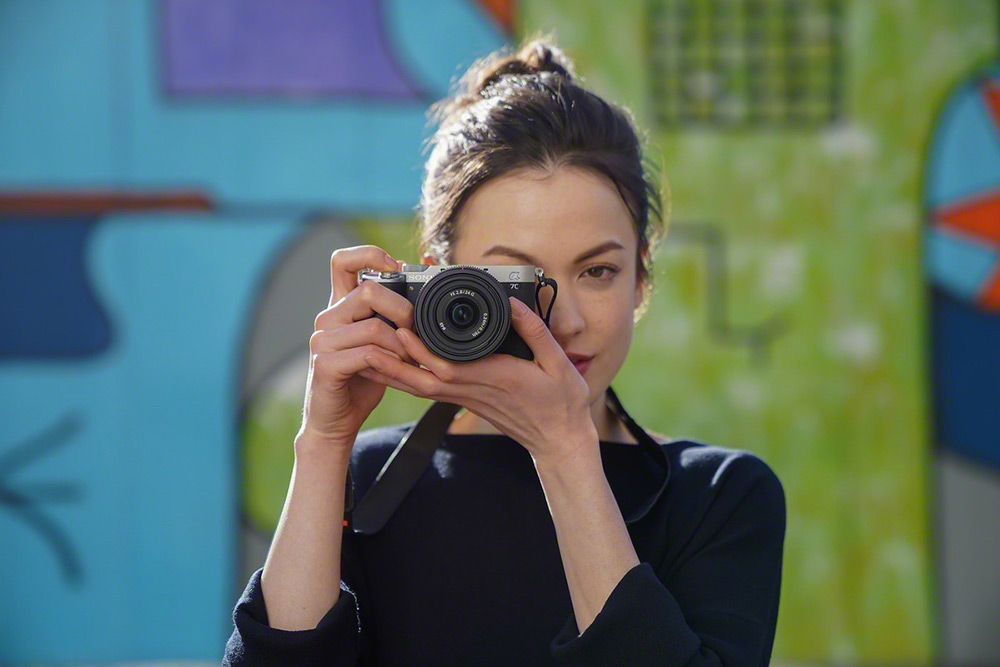
Are Second-Hand Cameras Good for Beginners?
The second-hand route is well worth considering as a way to acquire a budget camera for beginners. You can find good quality, lightly used cameras for less than a new model, however, if you are considering whether you should buy a used camera, you need to be aware of potential pitfalls - especially if you’re new to photography.
You should look for any subtle environmental damage, usage, and ensure you’re getting a warranty, which you should always get from an established dealer. For these reasons, it’s a good idea to educate yourself on how to buy a second-hand camera, ensuring you get a fabulous piece of kit that will benefit your photography in the long run.
When choosing your first camera, you will certainly be able to find a highly capable new or second-hand model, but there is a lot to consider before you jump in feet first.
With rapidly developing technology, you need to consider the benefits of mirrorless cameras against a DSLR, weigh up your budget, which lenses and accessories you require and whether a camera with lens kit is the best starting point for you. You may also want to assess which sensor size fits into the style you think you’ll be shooting most frequently - particularly when choosing between brand new or second-hand cameras.
Why not browse our comprehensive range of new cameras to find the one which will inspire your photographic journey? If you need more advice, you can get in touch with one of our experts, or try equipment first-hand in one of our camera stores, where we have plenty of staff who are on hand to help.
Share this post:
By Park Cameras on 31/03/2022
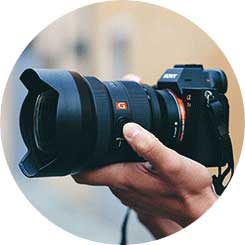
Trade in your old equipment
Fast and easy trade in service ensures your old gear is collected efficiently and you are paid quickly! It's very simple to trade in your unwanted photography gear. Just head over to our dedicated Sell or Part Exchange page, fill out the details, and we'll get back to you with an offer for your old gear. Take the cash, or put it towards the cost of your new gear. It's up to you! Find out more
sign up to the newsletter
Keep up to date on the latest photography news, events and offers. Sign up now